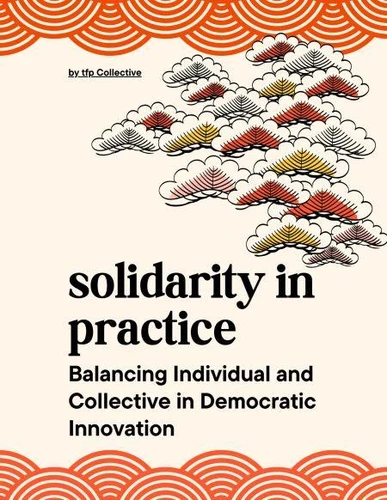Nouveauté
SiP: Balancing Individual and Collective in Democratic Innovation
Par :Formats :
Disponible dans votre compte client Decitre ou Furet du Nord dès validation de votre commande. Le format ePub est :
- Compatible avec une lecture sur My Vivlio (smartphone, tablette, ordinateur)
- Compatible avec une lecture sur liseuses Vivlio
- Pour les liseuses autres que Vivlio, vous devez utiliser le logiciel Adobe Digital Edition. Non compatible avec la lecture sur les liseuses Kindle, Remarkable et Sony
 , qui est-ce ?
, qui est-ce ?Notre partenaire de plateforme de lecture numérique où vous retrouverez l'ensemble de vos ebooks gratuitement
Pour en savoir plus sur nos ebooks, consultez notre aide en ligne ici
- FormatePub
- ISBN8231203031
- EAN9798231203031
- Date de parution18/07/2025
- Protection num.pas de protection
- Infos supplémentairesepub
- ÉditeurWalzone Press
Résumé
Teams across the United States are grappling with a persistent paradox that threatens the effectiveness of their most ambitious initiatives. Despite unprecedented investment in participatory democracy programs-from participatory budgeting in New York City to citizen assemblies in Austin-these initiatives consistently struggle with a fundamental tension between individual autonomy and collective action.
Community members want a meaningful voice in decisions that affect their lives, but they also resist processes that feel coercive or that subsume their individual perspectives into group consensus. Democratic innovators find themselves caught between designing processes that honor individual agency and creating collective outcomes that serve community needs.
Community members want a meaningful voice in decisions that affect their lives, but they also resist processes that feel coercive or that subsume their individual perspectives into group consensus. Democratic innovators find themselves caught between designing processes that honor individual agency and creating collective outcomes that serve community needs.
Teams across the United States are grappling with a persistent paradox that threatens the effectiveness of their most ambitious initiatives. Despite unprecedented investment in participatory democracy programs-from participatory budgeting in New York City to citizen assemblies in Austin-these initiatives consistently struggle with a fundamental tension between individual autonomy and collective action.
Community members want a meaningful voice in decisions that affect their lives, but they also resist processes that feel coercive or that subsume their individual perspectives into group consensus. Democratic innovators find themselves caught between designing processes that honor individual agency and creating collective outcomes that serve community needs.
Community members want a meaningful voice in decisions that affect their lives, but they also resist processes that feel coercive or that subsume their individual perspectives into group consensus. Democratic innovators find themselves caught between designing processes that honor individual agency and creating collective outcomes that serve community needs.



